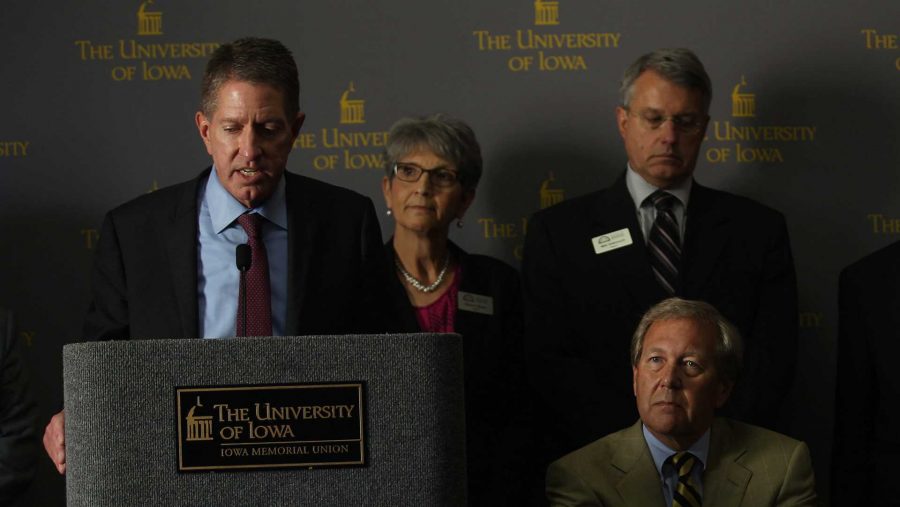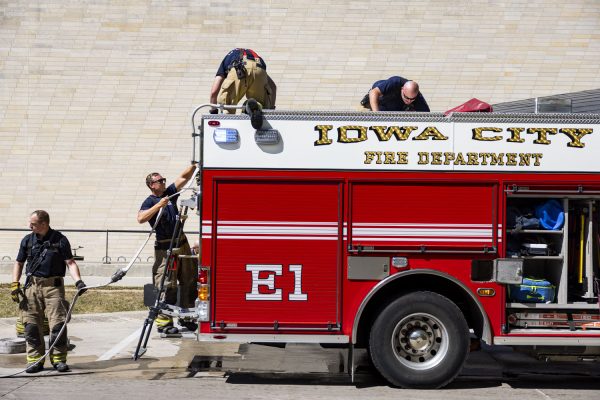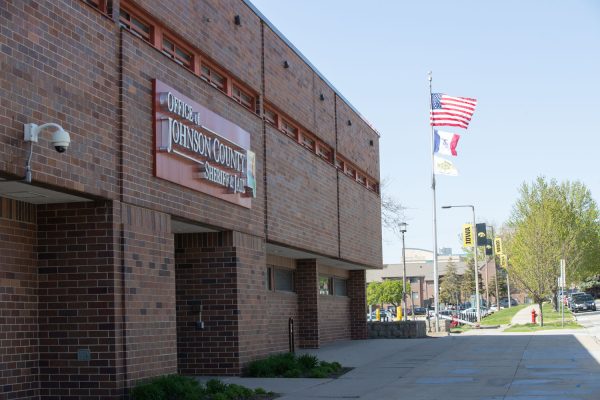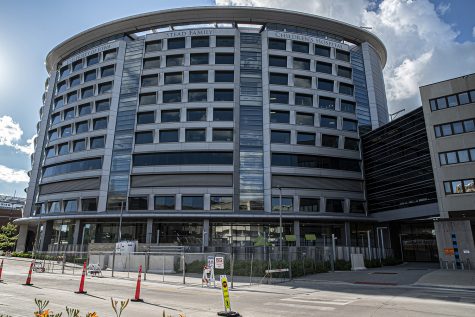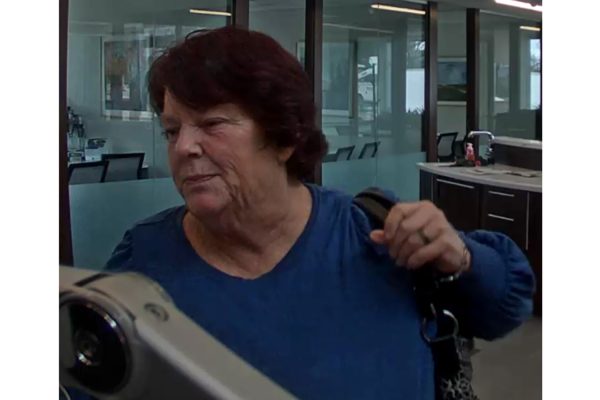Judge: Regents’ private meetings with Harreld did not violate open-meetings law
The Iowa Court of Appeals ruled Wednesday that the regents’ 2015 private meetings with UI President Bruce Harreld, then a potential candidate during the 2015 presidential search, did not violate the law.
Former state Board of Regents President Bruce Rastetter announces the appointment of Bruce Harreld as the new UI president during a meeting in the IMU on Sept. 3, 2015. Harreld is the 21st president of the UI.
January 9, 2019
The Iowa Court of Appeals on Wednesday upheld a Polk County judge’s 2017 ruling that the five current and former regents who met with Bruce Harreld during the 2015 presidential search process did not violate the Iowa Open Meetings Act, stating the plaintiff’s argument that the action was a violation of the law “defies ‘common sense and practical reason.’ ”
Plaintiff Gerhild Krapf, a former UI employee, alleged five private meetings members of the state Board of Regents held with Harreld during the presidential search process on July 30, 2015 were a violation of Iowa open-meetings law.
Fifth District Court Judge William Kelly granted the defendants’ motion for summary judgment on Oct. 30, 2017 to drop the case before it came to trial.
“Although this arrangement to provide information to and recruit Bruce Harreld may look like the Defendants were trying to avoid the purposes of the Iowa Open Meetings Act, undisputed facts were not proven to support the contention that these Defendants violated Iowa law,” Kelly found.
RELATED: Timeline of events: UI 2015 presidential search process
Harreld met with regents Bruce Rastetter, Mary Andringa, Larry McKibben, Milt Dakovich, and Katie Mulholland at Rastetter’s Ames office that day no more than two at a time, the current and former regents previously said in depositions, because meeting in this manner would avoid constituting what Iowa Code defines as a “meeting.” A meeting would require a majority of the nine-member governing board to be present at one time.
Krapf’s attorney previously argued the regents met in close temporal proximity, though they never met in a physical majority. Krapf alleged this constitutes “serial submajority gatherings” — forming what constitutes a single “meeting” by law — due to the back-to-back manner in which the meetings were held.
Judge Christopher McDonald ruled Wednesday that “there was never a majority of the members present at a gathering within the meaning of the act. There was also no deliberation within the meaning of the act. There is nothing in the summary judgment record to show the five regents discussed amongst themselves the individual meetings with Harreld.”
RELATED: Regents recount secret meetings held prior to hiring Harreld as UI president
The Wednesday decision was largely based on precedent from the City of Dubuque v. Telegraph Herald, in which the court ruled serial submajority meetings did not constitute a meeting in that case, stating “‘Any other rule would hamstring the progress of governmental bodies, and impose intolerable time burdens on unpaid officeholders.’ ”
Judge Anuradha Vaitheswaran wrote in a concurring opinion “the Iowa Supreme Court has recognized that serial submajority gatherings of public bodies may violate the Iowa Open Meetings Law,” but ultimately agreed “the gatherings in this case did not violate the Iowa Open Meetings Law.”



